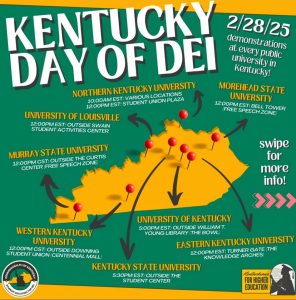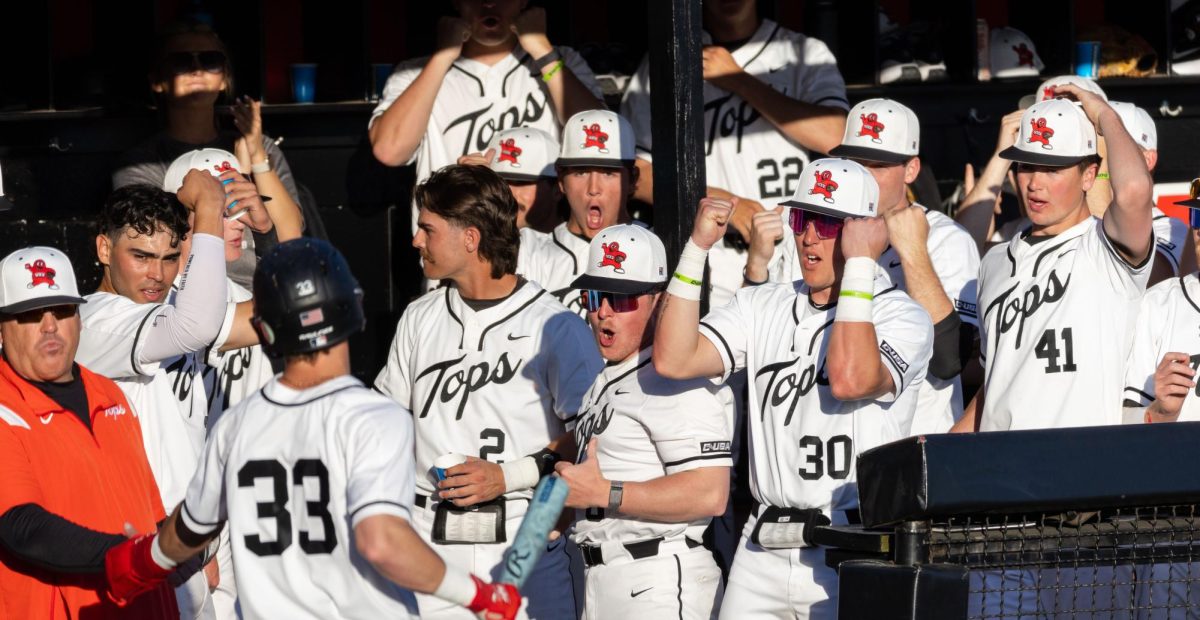Emslie, Baylis make recommendations about WKU’s academic future
March 26, 2011
Gordon Emslie, provost and vice president for Academic Affairs, and Gordon Baylis, vice president for Research, emphasized working with faculty and staff rather than working above them in an open forum Friday in the Downing University Theater.
“One thing that I think that’s got to be loud and clear is we know some people see administrators as people who say, ‘Thou shalt not,'” Baylis said. “We’re absolutely not saying that. We’re saying, ‘Thou mayest if thou wouldest.’”
Friday’s forum presented results from last fall’s listening tour, a comprehensive study of academics conducted by Emslie and Baylis.
Emslie emphasized that WKU has seen a lot of growth, yet has maintained a relatively steady faculty to student ratio of 19 to one.
“WKU continues to thrive,” Emslie said. “It’s really a testament to the students, faculty and staff.”
However, he said there are some areas that need improvement to keep the university on track.
“We want to provide you with the flexibility to use your talents to move the university forward,” Emslie said.
The five key areas discussed were overarching goals and strategies, budgeting strategies, faculty workload and incentives, enhancing research and creative activity, and reorganization, according to agenda materials provided at the forum.
The first point hit on areas such as general education and enrollment management.
The Generation Education Task Force is remodeling the general education courses to “blend these competencies into a more holistic integrative learning experience that exposes student to the wide variety of academic and research opportunities,” according to the booklet.
Emslie said he wants students coming to WKU because of what they’ve heard about the general education program.
The Office of Institutional Research has developed tools to calculate which students are most likely to transfer to increase the freshman-to-sophomore retention rate of about 74 percent, a number that Emslie said is not bad, but not something to be proud of.
The forum also discussed budgeting strategies, which mainly involved a reallocation of funds.
For example, $2.3 million generated from the Division of Extended Learning and Outreach has been distributed to cover part-time faculty costs.
Another strategy mentioned was a pilot program with the Honors College and Potter College of Arts and Letters. Faculty teaching Honors courses are compensated about 10 percent of their salary.
Emslie recommended the faculty workload being 60 percent teaching, 20 percent citizenship and 20 percent research and creative activity.
“If it works in your unit, it’s a tool you can use,” Emslie said.
Another proposal was to establish non-tenure research faculty and university-funded tenure-track pedagogical faculty.
Baylis said that research must be increased at the university in all divisions.
“Everybody helps everybody else,” Baylis said. “The reputation is carried by us all.”
This means training people in writing and editing grants.
“I’m not telling you to chase money,” Baylis said. “It has to be pointed out that research funding is a way of bringing extra funding to the campus.”
What we want to be doing is have more research, more impact. If we do that, the dollars will come along with it.”
The last main subject discussed at the forum was reorganization of certain divisions.
The purpose of reorganization includes “administration efficiency, process efficiency, simplicity, clarity and nimbleness,” Baylis said.
“Another theme that … we’re very keen on is clear communication,” Baylis said.
The office of the provost will be rearranged, Emslie said.
Richard Miller, associate vice president for Academic Affairs, will become vice provost.
The heads of Enrollment Management, Academic Budgets and Administration, Planning and Program Development, Extended Learning and Outreach, and Academic Enrichment and Effectiveness will all become associate vice presidents for their divisions.
“I want to stress that these people are the primary point of contact for these areas,” Emslie said.
President Gary Ransdell said the forum is important because it addresses where WKU is headed in the future.
“This is about Academic Affairs. It’s about research. It’s about the core of our intellectual community,” Ransdell said. “And it involves everybody.”
Another open forum for feedback is scheduled for 3 p.m. April 22 in the Mass Media and Technology Hall Auditorium.
Read more about Friday’s forum in Tuesday’s Herald.


















